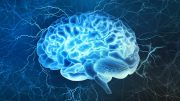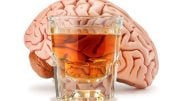
Researchers at the University of Helsinki have identified CDNF as a potential breakthrough treatment for ALS, showing its efficacy in improving motor behavior and reducing paralysis symptoms in animal models, thereby offering hope for more effective ALS therapies.
A team of researchers at the University of Helsinki, along with their collaborators, have discovered a promising drug candidate for the treatment of amyotrophic lateral sclerosis (ALS). The drug, cerebral dopamine neurotrophic factor CDNF has shown positive results in prolonging lifespan and alleviating disease symptoms in animal studies involving rats and mice.
Understanding ALS
Amyotrophic lateral sclerosis (ALS) is a rapidly progressing fatal neurodegenerative disease that affects the nerve cells in the brain and spinal cord. Specifically, a selective degeneration of motoneurons occurs in the spinal cord, leading to muscle atrophy and paralysis.
Most patients with ALS die from respiratory failure, usually within 1 to 3 years from symptom onset. There is no cure for ALS, and the only drug available in Europe, riluzole, only prolongs ALS patient survival by a couple of months.
Assistant professor Merja Voutilainen and researchers from the Regenerative Neuroscience Group, Faculty of Pharmacy and Institute of Biotechnology, University of Helsinki, together with their national and international collaborators, investigated the therapeutic effect of a protein called cerebral dopamine neurotrophic factor (CDNF) in several cellular and animal models of ALS.
Research on CDNF
The CDNF protein, discovered by Professor Mart Saarma laboratory in 2007, is mostly found in the endoplasmic reticulum (ER) within cells. ER is an important cell organelle mainly involved in the synthesis and maturation of circa one-third of all proteins in the cell. CDNF has previously shown therapeutic potential in Parkinson’s disease.
In this study, the Regenerative Neuroscience Group used three animal models that were genetically modified to express human mutations (TDP43-M337V and SOD1-G93A) affecting ALS patients.
Their goal was to investigate whether CDNF can affect disease development in the rodent models of ALS and elucidate its mechanism of action. They were particularly interested in studying ER stress, which is a cellular response to protecting cells and its proteins. If ER stress becomes chronic, as is the case in many neurological diseases, it can cause cell death.
Study Findings
“We found that administration of CDNF to ALS mice and rats significantly improves their motor behavior and halts the progression of paralysis symptoms. Symptom amelioration is reflected in an increased number of surviving motoneurons in the spinal cord of the animals compared to rodents that did not receive CDNF. Our experiments suggest that CDNF may rescue motoneurons by reducing the ER stress response and, therefore, cell death. Importantly, ER stress was present in all our animal models, independently of the specific genetic mutations,” says Dr. Francesca De Lorenzo, lead author of the study, from the University of Helsinki.
Professor Michael Sendtner from the University of Würzburg, Germany, one of the world’s leading researchers in the field of ALS research and co-author of the study, comments: “This study opens the way to a rational therapy to counteract one of the most severe cellular pathologies in ALS: ER stress.”
“CDNF holds great promise for the design of new rational treatments for ALS”, says Dr. Merja Voutilainen, Assistant professor at the University of Helsinki and the director and senior author of the study.
Reference: “CDNF rescues motor neurons in models of amyotrophic lateral sclerosis by targeting endoplasmic reticulum stress” by Francesca De Lorenzo, Patrick Lüningschrör, Jinhan Nam, Liam Beckett, Federica Pilotto, Emilia Galli, Päivi Lindholm, Cora Rüdt von Collenberg, Simon Tii Mungwa, Sibylle Jablonka, Julia Kauder, Nadine Thau-Habermann, Susanne Petri, Dan Lindholm, Smita Saxena, Michael Sendtner, Mart Saarma and Merja H Voutilainen, 16 March 2023, Brain.
DOI: 10.1093/brain/awad087









Last year, my 68-year-old partner was diagnosed with Lou Gehrig’s disease also known as ALS. Speaking and swallowing were two of his challenges. His collapse was swift and catastrophic, and neither the riluzole nor the medical staff did much to aid him. He would not have survived if our primary care physician hadn’t given him attentive care and attention, as the hospital center didn’t provide any psychological support. His fall was abrupt and catastrophic. His hands and legs gave way to weakness in his arms. This year our family physician suggested using vinehealthcentre. com ALS/MND treatment, which my husband has been receiving for a few months now. I’m delighted to say that the treatment greatly reduced and reversed his symptoms of ALS, he no longer requires a feeding tube, sleeps soundly, works out frequently, and is now very active. In the hopes that it could be useful, I thought I would relate my husband’s tale; in the end, you have to do what suits you the best.
I was diagnosed last July. I was wheelchair bound. My feet hurt horribly on the foot petals. I started ALS/MND programme about 4 months ago. I’m now able to walk down the street and back at least I couldn’t do that prior to the ALS treatment. It doesn’t make the ALS go away but it did give me better quality of life. I got the treatment from vinehealthcentre. com
Thanks